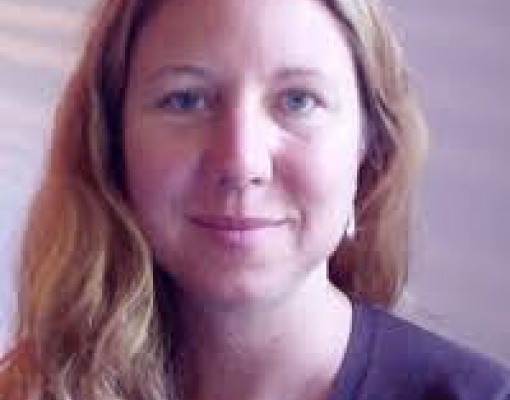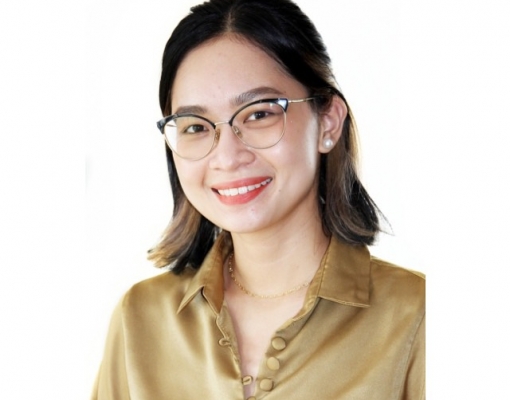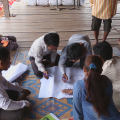Podcast – Epistemic injustice in water governance with Karen Delfau
This podcast explores the concept of epistemic injustice. What is it, when does it occur, and how can researchers address this in research projects?
For this podcast episode, we talked with Karen Delfau, a lecturer and researcher exploring water governance and the inclusion of different ways of knowing and understanding water and rivers. She has also been working with SUMERNET, looking at how co-creation and co-production of knowledge operate within water governance processes in the Mekong.
Often knowledge co-creation can involve epistemic injustices that occur in the ways that local knowledges are accessed, reported, documented, shared and used in research and policymaking.
Karen Delfau explains the different types of epistemic injustices involved in knowledge co-creation.
“The most obvious one is testimonial injustice … when somebody on the receiving end of knowledge doesn't really give credibility to somebody who is sharing that knowledge with somebody who's saying because they have some kind of prejudice whether it's implicit in inside of them or whether it's explicit against the speaker.
“With hermeneutical injustice, we don't understand somebody because we can't really see where they're coming from, and we don't understand how they perceive the world, or what their reality is. And because of that, they just don't seem legible to us, and it doesn't make any sense. And we're not willing to sit down and really listen and try and figure out what's going on.”
Karen looks at examples of her own collaborations in the Mekong Region and shares tips for researchers to help address epistemic injustice and bias when conducting fieldwork.
"When we walk into a place, and then question people about their oppression, or the challenges that they face in their livelihood. What's going on there? How would I feel if somebody would come into my community and treat me that way?
It’s about situating ourselves within the context and really reflecting on what we're trying to achieve, and how we go about doing that. Reflecting on how not to bring about that sort of epistemic exploitation ...."
Episode host: Rajesh Daniel
Sound editing: Rajesh Daniel and Kadesiree Thossaphonpaisan
Series producers: Rajesh Daniel and Variya Plungwatana
Download the transcript using the link below. Links for additional resources and reading are also included in the transcript.
Listen to this episode on available channels:
Info
This story is part of the following project
SUMERNET 4 All: Engaging with water insecurity in the Mekong Region
Topic
Related people
You might be interested in
-
SUMERNET Vision Guide introducing the new phase "SUMERNET 4 All"
The new, revised "Vision Guide" for SUMERNET is now available. This vision guide presents an overview of SUMERNET - its origins and governance structure, background to the network, aims, key research areas, engagement with policy, and outreach products
![SUMERNET Vision Guide introducing the new phase "SUMERNET 4 All"]()
-
SUMERNET 4 All Call for Proposals on Joint Action
SUMERNET 4 All (S4A) provides financial support and technical assistance to consortia of researchers and boundary partners from the Mekong Region
![SUMERNET 4 All Call for Proposals on Joint Action]()
-
SUMERNET launches redesigned website to provide a fresh visual look and direction
SUMERNET is proud to announce the launch of our redesigned website to coincide with our new phase of work on addressing water insecurity in the Mekong Region.
![SUMERNET launches redesigned website to provide a fresh visual look and direction]()







 Read more about SUMERNET
Read more about SUMERNET
